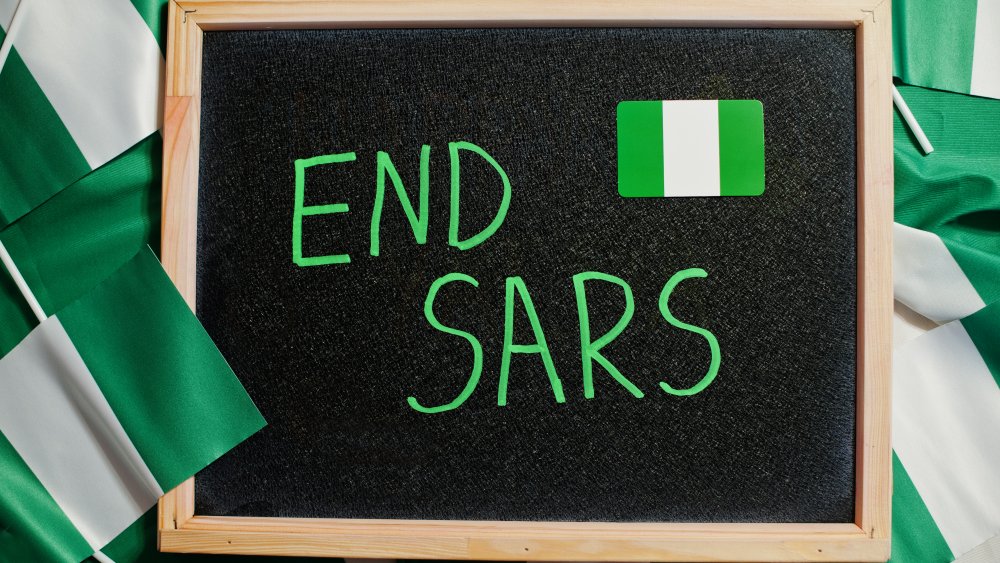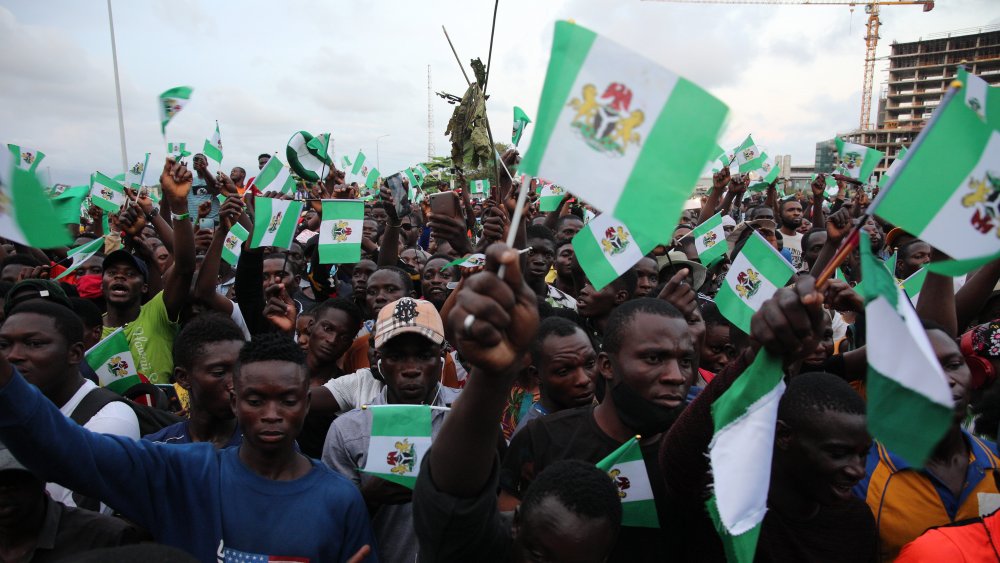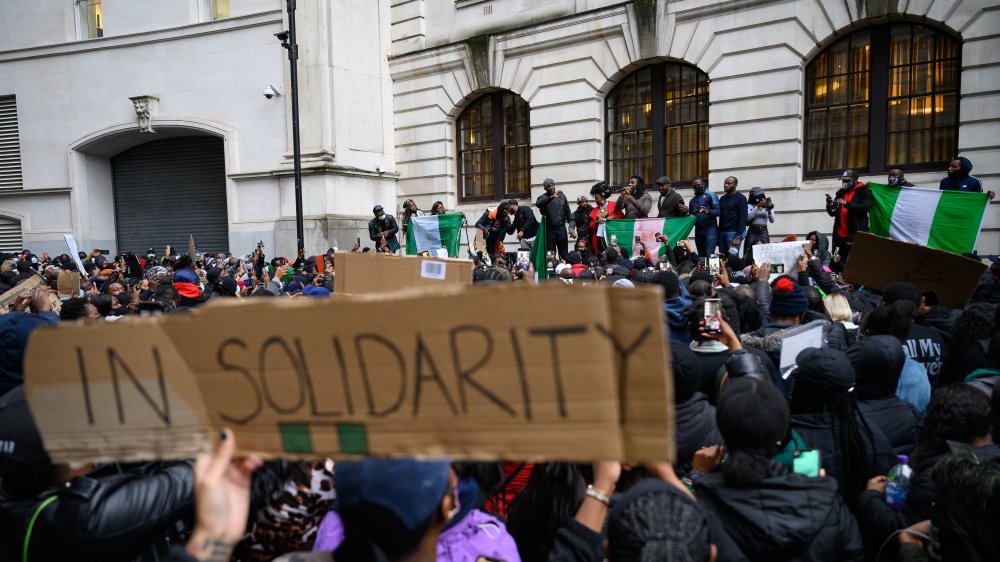The Messed Up Truth Of SARS In Nigeria
You may have recently seen some of your favorite pop stars, from Rihanna to Nicki Minaj to Beyoncé, posting the hashtag #EndSARS and wondered what they're talking about. First off, no, it's not the respiratory disease SARS that threatened the world in 2003. You don't have to worry about another pandemic right now (but remember, the coronavirus isn't going to disappear as easily as SARS did).
The End SARS movement is a social justice campaign in Nigeria that is demanding the disbandment of the country's Special Anti-Robbery Squad, or SARS. According to Quartz Africa, the police force has operated with impunity for decades and its officers have been accused of arbitrary arrests, extortion, torture, rape, and even extrajudicial killings. To promote awareness of the issue, protesters created a website where citizens can post videos, pictures, and stories of violent interactions with SARS officers.
It also includes a list of five demands the movement has put forth to the Nigerian government. These include the immediate release of all prisoners who have been arrested by the agency, justice for people who have been killed by SARS agents and compensation for their families, and an independent investigative body to deal with police misconduct. Demonstrators are also pushing for psychological evaluations and retraining of SARS officers before they can be redeployed in other forces, via a recently passed new legal framework, and pay raises for police to provide an incentive for them to serve and protect, rather than extort.
Protests erupt into violence in October 2020
The BBC reported in mid-October that the protests in Lagos calling for an end to the SARS police force turned deadly when soldiers fired upon protesters who had been gathering in the streets for the two weeks prior. Witnesses and human rights organization Amnesty International reported several deaths and injuries from the attack. Authorities in Lagos and elsewhere in the country then imposed a 24-hour curfew. A bus station, the port authority headquarters, and a TV station linked to top Nigerian politicians were reportedly set on fire with Molotov cocktails.
The protests were sparked by the killing of a man in the southern state of Delta. A video of the killing went viral and sparked outrage after it was posted on October 3, according to a timeline of the unrest put together by Al Jazeera. Police claimed the video was "fake news," but protesters weren't buying it.
Demonstrations popped up in major cities all across the country. Nigerians say they are tired of the impunity the force enjoys even after Amnesty International released documentation of police brutality in 2016, as well as the rare conviction of five SARS officers for the extrajudicial killings of two young men in Rivers State, as the Daily Post reported in September 2017. Facing problems similar to those posed by police in the United States who justify violence under the guise of qualified immunity, Nigerians have refused to back down, despite the increasingly belligerent methods employed to repress them.
Celebrities show solidarity with protesters, but not all are accepted
As the BBC reported on October 22, several celebrities expressed support for the End SARS movement on social media, and most were received by protesters with love and gratitude. Rihanna tweeted that she considered the Nigerian police force's actions "a betrayal to the citizens," adding, "the very people put in place to protect are the ones we are most afraid of being murdered by!" Protesters were heartened when she said, "I'm so proud of your strength and not letting up on the fight for what's right! #ENDSARS." Statements of support from Kanye West, Trevor Noah, and Nicki Minaj were also welcomed and appreciated.
The usually untouchable megastar Beyoncé, however, received a load of heated backlash from the Nigerian protesters after her charity organization BeyGood tweeted a message stating that it was "collaborating with coalitions to provide emergency healthcare, food and shelter." Protesters criticized the singer's assumption that they were poor and hungry. "Can somebody tell this woman we are not hungry??????? We need support to fight for our existence," businesswoman Mercy Ehimare tweeted back. Others criticized the singer's decision to post it on the charity's account, the 76,500 followers of which are dwarfed by the 15 million on her personal account.
Protesters say that the most important thing they need right now is the attention of the international community to put pressure on the Nigerian government and finally bring an end to the brutality of the SARS police force.


